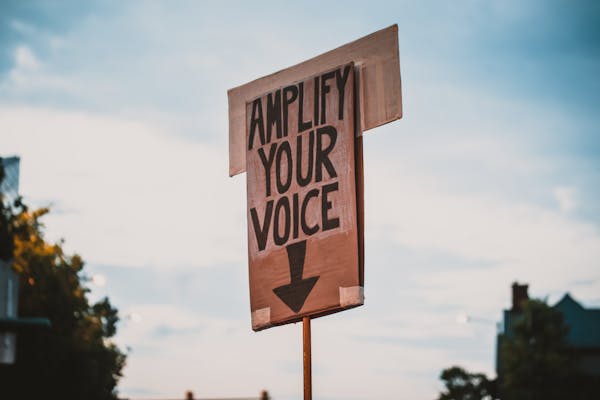
Codependency is a learned behavior that can have devastating effects on our relationships. We’re often not even aware or understand why we do it. But if we don’t change, these codependent behaviors in relationships might be pushing away those we care about the most.
What is Codependency?
Codependency is an unhealthy relationship dynamic where individuals merge their identity to one another. One or both partners’ self worth is dependent upon their relationship. They often don’t have any interests, values, or strong identity of their own.
Signs of codependent behaviors in relationships differ than normal levels of dependency. With a healthy level of dependency, both partners feel supported, safe to express their needs, and equally depended upon.
However, in a codependent relationship, one or both partners have an unhealthy level of neediness upon the other for emotional stability, a sense of identity, self worth or security, etc.
What Are Some Codependent Behaviors in Relationships?
Codependency can show up in all types of relationships, but most commonly in romantic relationships.
Signs of Codependent Behaviors in Relationships:
- Seeking to control, or being controlled by another
- Approval seeking
- Playing the role of caregiver or parent figure
- Sacrificing too much of yourself to put your partner’s needs first
- Lack of personal boundaries or have a hard time saying ‘no’
- Feeling overly guilty or responsible for your partner’s feelings or behaviors
- Fear spending time alone or allowing your partner to have alone time

What Causes Codependent Behaviors in Relationships?
There are many causes of codependency, but most commonly it’s learned from our childhood environments. We learn it by observing our parents, or other caregivers. A dysfunctional family upbringing may also cause us to have low self-esteem, which leads to codependent relationships.
Codependency is Not Always Abusive
Codependency may not always be emotionally or physically abusive. It might have been an overprotective parent who meant well. Or the best friend who doesn’t know how to respect your personal space. Your codependent upbringing might have been dysfunctional, but that doesn’t always mean it was abusive. Codependency in dating might look like excessive neediness, a lack of personal boundaries, space or identity.
Why We Need to Change
Codependency is based on outdated beliefs that are detrimental to our self-worth. We deserve more: a solid self-worthiness that is not dependent on the actions or opinions of others. Only then can we love from a place of already enough-ness, and let go of fear-based behavior – which only hurts our relationships.
So read on for 7 Codependent Behaviors in Relationships to Stop ASAP.
7 Codependent Behaviors in Relationships to Stop ASAP:

1. Conflict Avoidance
You avoid conflict at all costs. You’d rather ignore an issue than disagree with your partner. You often suppress your true thoughts, opinions, needs or desires, and pretend everything is okay just to keep the peace.
Why it Hurts Our Relationships
When we avoid conflict at all costs, we suppress our true selves. If our concerns and needs aren’t expressed, then our partners won’t understand what’s expected of them. This leads to resentment and communication gaps.
No one likes conflict, but it’s an essential part of relating to others. Healthy relationships require being able to express and resolve our difficult feelings, even when it’s uncomfortable.
A Learned Behavior
If you were raised in a codependent environment, chances are you never learned to deal with conflict in a healthy way. Perhaps your parents avoided it all together. Or you might harbor painful trauma around conflict because of a parent’s abuse, harsh criticism or shaming.

2. Being Overly Jealous
You’re overly jealous towards your partner. You believe you must monitor their behavior and who they spend time with. Or vice versa – you allow your partner to act overly jealous and possessive towards you.
Why it Hurts Our Relationships
Healthy relationships require trust, honesty, and autonomy. When you’re overly jealous you’re showing your partner you don’t trust them. You’re also attempting to control their behavior, although you may be unaware of it. Eventually this will lead to resentment and your partner feeling like they are not free to make their own decisions.
Let Go of Jealousy
If you’ve been cheated on in the past, or your partner has proven to be untrustworthy, then it’s normal to have feelings of jealousy. But being overly jealous is a sign of codependency. It may be based on the assumption that if you don’t control your partner’s behavior – then they won’t choose to be faithful on their own. However, this comes from a place of insecurity and low self worth. If you can’t trust your partner then you probably shouldn’t be with them in the first place.
You might have learned this behavior from codependent parents. Perhaps your father displayed jealousy and possessiveness towards your mother so you assumed it was only normal. But truly healthy relationships are based on mutual respect and trust, not control.
Read Related: How to Mindfully Deal with Fear & Anxiety

3. Not Having Your Own Interests
You don’t have your own interests outside of your relationship. You embrace your partner’s interests and hobbies, but don’t place the same importance on your own. You neglect your hobbies, passions, goals, or friends/family. You stop doing the things you used to enjoy before you started your relationship.
Why it Hurts Our Relationships
When you stop having your own interests, you lose your sense of personal identity. You suppress your authentic self and your identity becomes tied to your partner. Then you expect them to fulfill you in ways they can’t possibly ever fulfill. Resentment will build on both sides.
If you lose touch with your interests, you’ll lose touch with your deepest self. And if you’re not fulfilled from within, then you won’t be able to contribute to the relationship in an authentic way.
Read Related: 10 Positive Mindsets for Healthy Relationships

4. Hesitate to Make Decisions
You find it difficult to make decisions on your own. You seek your partner’s approval for all decisions, even trivial ones. You don’t trust yourself to make the ‘right’ choice and fear being criticized for choosing wrongly. You often wait until after you hear your partner’s opinion before you form your own. Or after you’ve made a decision, you only change it immediately if your partner disapproves.
Why it Hurts Our Relationships
We put our partner on a pedestal, believing their judgment is superior to our own.
This may cause your partner to resent you because they feel pressured to make all the important decisions, and have to take on more responsibility in the relationship.
However, this codependent behavior mostly hurts the relationship we have with ourselves. We become so focused on pleasing others that we forget to check in with our own thoughts, feelings, and desires. We start to lose trust in our ability to make wise decisions and no longer feel competent.
Of course, certain major decisions should be agreed upon by both partners. But, especially with decisions that influence your life, ultimately only you can know what’s truly best for you.

5. Don’t Take Time for Yourself
You don’t make time for yourself or allow your partner to have their alone time. Being apart from your significant other makes you anxious. You don’t know how to enjoy your own company. You let your fear of being alone influence your decisions, often staying in a dysfunctional relationship just to avoid being alone.
Why it Hurts Our Relationships
This behavior hurts our relationships because your partner may feel suffocated by the lack of personal space. Time spent alone will help you reconnect with your deeper self, and therefore have more to give your partner, instead of feeling depleted. Learn to enjoy your own company and overcome your fear of being alone – it will enhance both your relationship with yourself and your significant other.
Read Related: Remember This When You Want to Give Up on Dating

6. Lack Personal Boundaries
You don’t have clear personal boundaries or are unable to maintain them. You don’t have expectations for how you should be treated, and don’t honor them if they’re violated. You have difficulty saying ‘no’ and often give too much without your partner reciprocating.
Why it Hurts Our Relationships
If you don’t have strong personal boundaries then you’ll likely tolerate disrespect from others. We teach others how to treat us not just with our words, but with our actions. If you don’t respect your own boundaries, your partner will likely not respect them either.

7. Unrealistic Expectations for Your Partner
You have unrealistic expectations of your partner – you expect them to make you happy, share every interest, or fulfill all your social needs. You don’t accept responsibility for your own emotions or overall life fulfillment.
Why it Hurts Our Relationships
When we expect our partner to be our everything and everyone to us, it only sets us up for disappointment. We must remember that our spouse is only one, imperfect human being – we shouldn’t expect them to also be our therapist or to share the same interest in our every hobby.
Closing Thoughts
Codependency is a fear-based behavior that bases our self-worth on the existence of another. While loving relationships enhance our lives, we must remember that unshakeable self-worth can only come from within ourselves, by our own choice.
Let go of neediness and choose to love from a place of whole-ness. Only then, are we free to love and give to others from our most authentic selves.
So stop doing these 7 codependent behaviors in relationships today. Awareness is the first step to change. A codependent past might be causing your behavior, but it’s never too late to change – and let go of the past – one small choice at a time.
Thank you for reading my blog! Please pin it to share with others and spread the word!
Read Next: How Changing My Story Improved My Life







Wow! This article is amazing. I didn’t know there was a thing called codependency. But after reading this I can see traces of it in my life too. Need to make changes asap. Well written, thank you
Thanks for your comment! Yes, I experience it in my own life too and it’s something I’m working on as well. 🙂
This is a huge problem is many relationships.
Very good article. I absolutely love this site. Thanks!